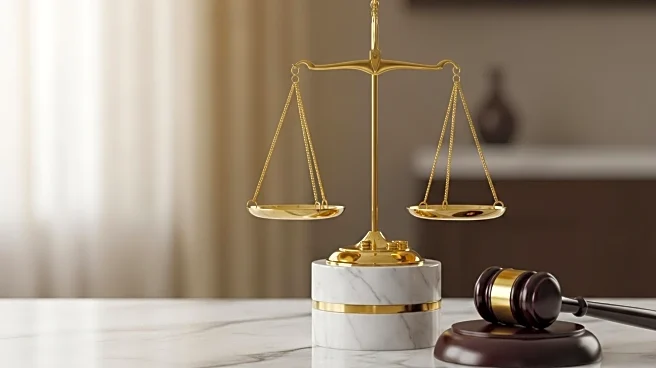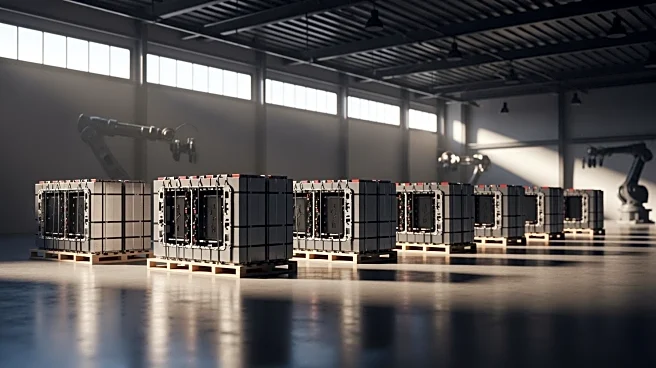What is the story about?
What's Happening?
A federal appeals court has ruled that President Trump does not have the authority to impose tariffs using emergency economic powers, a decision that challenges a key aspect of his administration's trade policy. The court found that the power to levy taxes on imports lies with Congress or within existing frameworks to investigate trade imbalances. This ruling is a significant setback for the White House, potentially stalling Trump's second-term agenda, which heavily relied on tariffs as a tool for economic and foreign policy leverage. The Justice Department plans to appeal the decision to the Supreme Court, and the tariffs will remain in effect until the case is heard.
Why It's Important?
The ruling could have substantial implications for U.S. trade policy and economic strategy. Tariffs have been a cornerstone of President Trump's approach to international relations and economic management, intended to generate revenue and influence foreign governments. The decision may limit the administration's ability to use tariffs as a bargaining tool, affecting industries and consumers who have been impacted by these import taxes. The outcome of the appeal could shape future presidential powers regarding trade and economic emergencies, influencing how the U.S. engages with global markets.
What's Next?
The Justice Department's appeal to the Supreme Court will be a critical next step, determining whether President Trump can continue using tariffs as part of his economic strategy. If the Supreme Court upholds the appeals court's decision, the administration may need to explore alternative legal avenues or legislative support to implement its trade policies. Congress could play a role in authorizing tariffs, though lawmakers have been hesitant to take actions that might be linked to rising consumer prices. The decision could also prompt discussions on the balance of power between the executive branch and Congress in trade matters.
Beyond the Headlines
The ruling highlights the legal complexities and challenges of using emergency powers for economic purposes. It underscores the importance of checks and balances in U.S. governance, particularly in areas where executive actions intersect with legislative authority. The case may set a precedent for how future administrations approach trade policy and the use of tariffs, potentially leading to more defined legal frameworks and limitations on presidential powers.
















